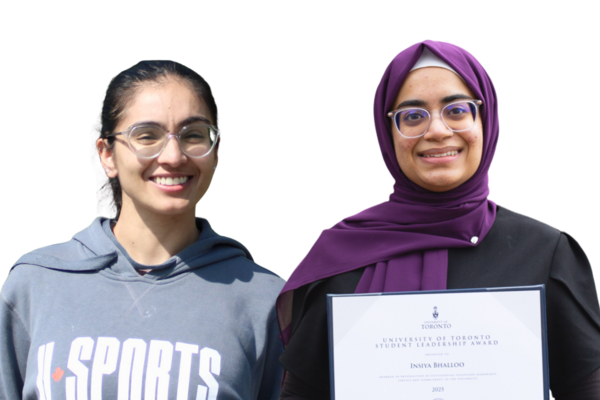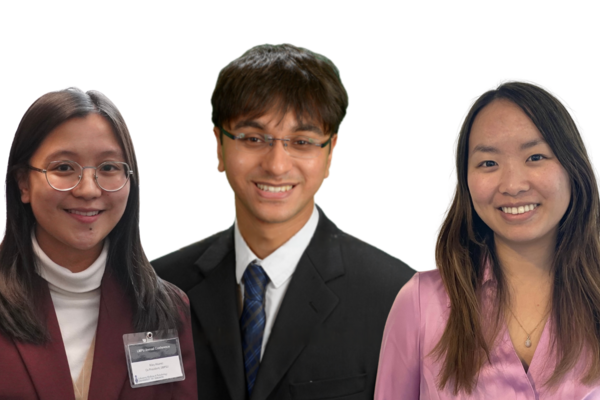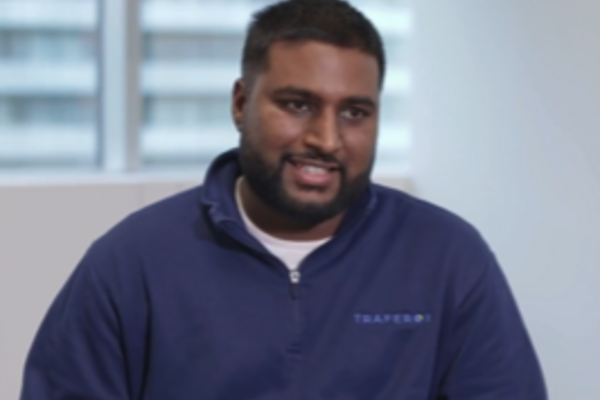Main Second Level Navigation
Breadcrumbs
- Home
- News & Events
- News
- Embracing the Journey: Reflections from Temerty Medicine’s RHSE Class of 2024
Embracing the Journey: Reflections from Temerty Medicine’s RHSE Class of 2024

As the academic year draws to a close, we caught up with a select group of exceptional graduate students from our Research and Health Science Education (RHSE) community in the Temerty Faculty of Medicine. These individuals embody dedication, perseverance and academic excellence, each having carved a unique path towards their impending milestone.
As they stand on the threshold of a new chapter in their lives, writer Sarah McMahon spoke to them about what brought them to Temerty Medicine, what they have learned and the advice they have for incoming students.
Shifat Ahmed
Degree: MHSc
Program: Medical Genomics
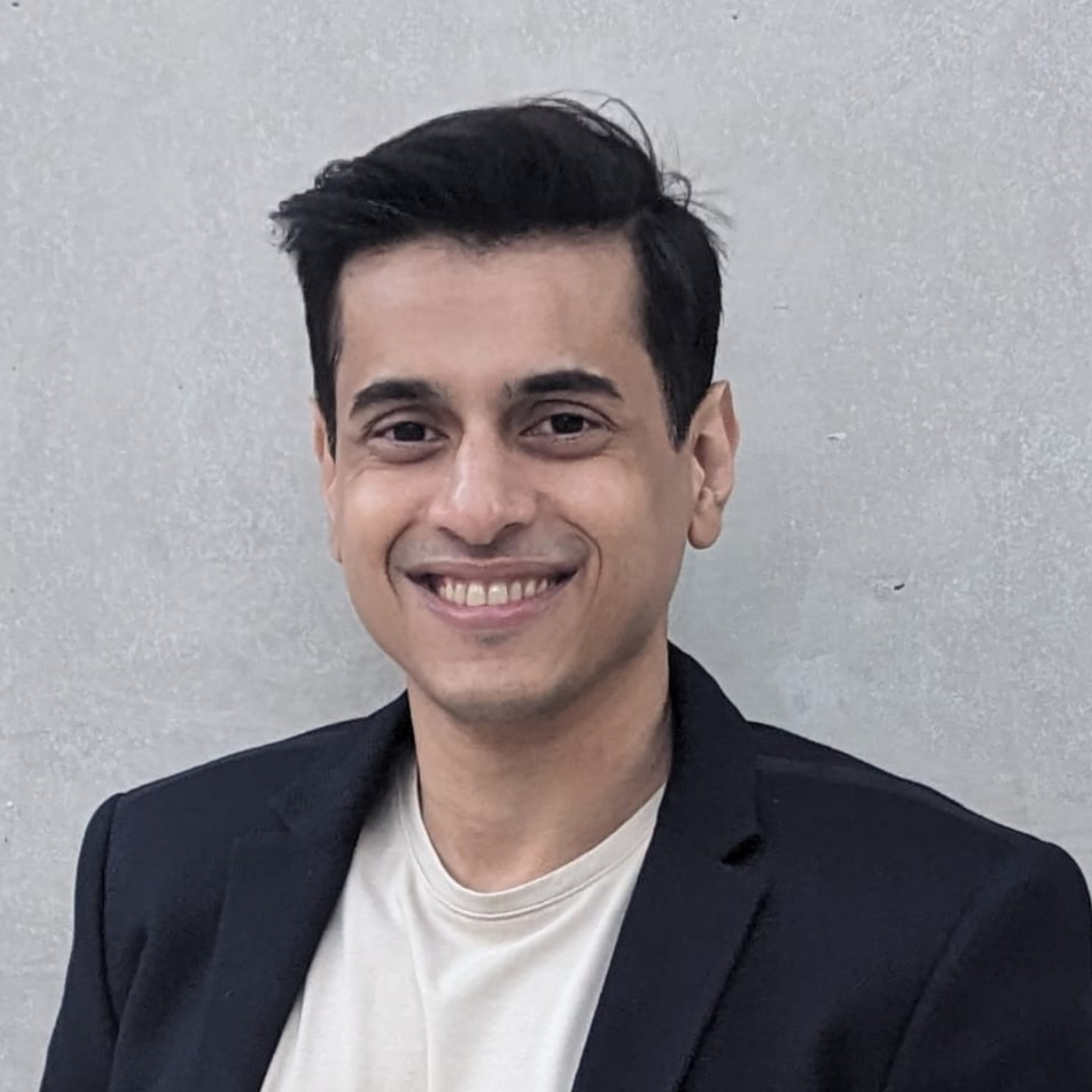
What made you want to study medical genomics?
In recent decades, the rapid advancement in molecular techniques and the industrialization of molecular diagnostics has led to tailor-made medical treatments, or precision medicine. Having spent nearly five years in wet lab biomedical research, I realized that the main challenge lies in the accurate interpretation and timely application of this data to improve overall health outcomes.
Sequencing data is accumulating in databases faster than it can be curated and analyzed. The world desperately needs more genomic scientists, molecular technologists and bioinformaticians to decode these A-T-G-C- sequences and harness the potential of genomic medicine. This need is what sparked my motivation to study medical genomics.
The medical genomics program at the University of Toronto is unique and specially designed to prepare skilled graduates who can effectively integrate the data from cutting-edge genomics research to address clinical challenges. This program aligned seamlessly with my interests and background, making it the ideal choice for me.
What aspects of health science are you most passionate about?
I am truly excited to witness how genomics will revolutionize precision medicine and improve health care outcomes in the future. Understanding the genetic basis of diseases opens opportunities for personalized treatments that could be more effective and have fewer side effects.
Additionally, I am deeply interested in leading qualitative research to uncover human perspectives, lived experiences and societal factors that influence health. This is crucial for ensuring that genomic advancements are equitably accessible to all populations.
The success of modern science lies in the effective and timely translation of research into practice. I am passionate about using my multi-disciplinary skills to bridge the gap between bench and bedside and to ensure everyone benefits from these scientific advancements.
What’s coming up next for you?
Recently, I joined Dr. Yvonne Bombard’s Genomics Health Services Research group at St. Michael’s Hospital as a Research Coordinator. In this role, I will be involved in two key projects. The first is the Terry Fox Research Institute Marathon of Hope Cancer Centres Network quality of care project, where the purpose of the work is to build pan-Canadian experience in generating quality indicators for precision oncology.
The second one is a multi-institutional study with an overall goal of integrating equity into economic evaluations to inform resource allocation decisions in Canada. Both projects will enhance my research, project management, analytical, and communication skills and provide great opportunities to foster strong connections with national and provincial experts and patient groups.
If you could talk to your first-year-of-grad-school self, what would you say?
Be open to opportunities and remember learning is not confined to the walls of your classroom. Embrace new experiences, whether through internships, research projects, volunteering or networking events. These opportunities will enrich your education and provide invaluable practical skills and insights.
What advice do you have for incoming graduate students?
The first thing I would tell them is, “You are very good, hence you are here.” It is easy to get overwhelmed with the challenges of grad school, so it is important to embrace the journey with confidence and resilience.
It is fine to encounter a few failures, what matters is what you learn and take forward from those experiences. Remember you are not alone in this journey - you have a supportive network of peers, mentors, teachers and departmental resources to lean on.
I would also advise maintaining a healthy work-life balance and prioritizing self-care alongside academic pursuits. Remember that true learning and growth occur when you are enjoying the process, not when you are stressed to the gills.
Finally, stay true to your passion and let your enthusiasm fuel your determination to overcome any challenge. You got this!
Samantha Nacci
Degree: MHSc
Program: Laboratory Medicine
Stream: Pathologists' Assistant
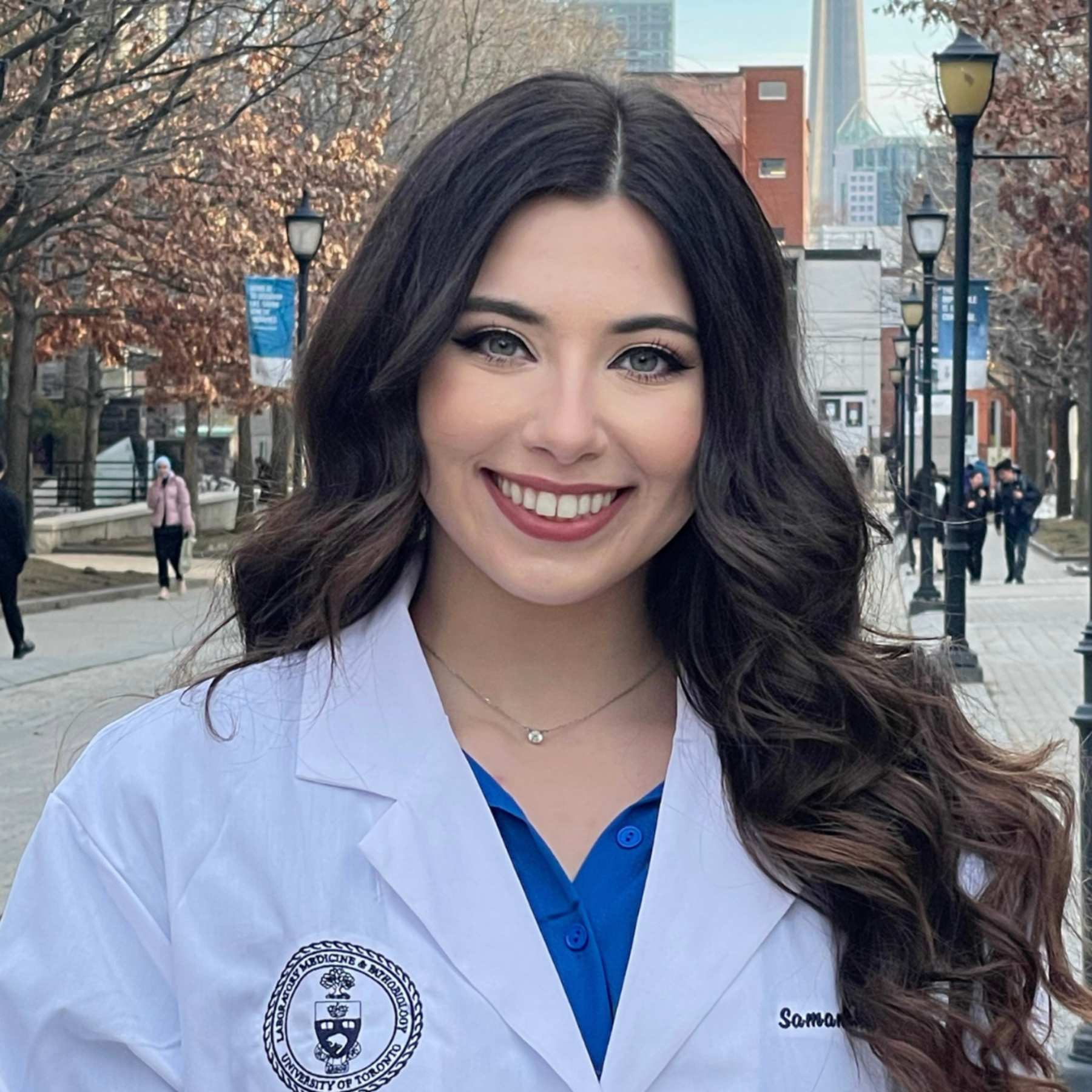
What made you want to become a Pathologists' Assistant?
When I was 13 years old, I experienced the loss of two important people in my life, one tragically and the other from disease. Understanding the nature of the disease helped me heal and come to terms with that loss.
However, the lack of answers regarding the tragic loss left me searching for closure. This fueled my desire to understand the circumstances which contributed to their death, ultimately leading me to pursue a career as a Pathologists' Assistant.
As a Pathologists' Assistant, I can help families gain the insight I lacked. This career allows me to participate in the process of delivering high-quality patient care and making a positive impact on people's lives. Both autopsy and surgical pathology play a crucial role in providing patients and their families with answers they are desperately seeking.
This field offers me the opportunity to be very hands-on and involved in my work, which is immensely fulfilling. Being able to assist in the diagnostic process and contribute to patient care has been my lifelong passion, and I look forward to continuing this journey.
What aspects of health science are you most passionate about?
I am fascinated by the intricate processes of disease diagnosis and the crucial role pathology plays in patient care. The meticulous work involved in the gross examination of various specimens and conducting autopsies assist pathologists in diagnosing diseases and determining the cause of death, which is both challenging and immensely rewarding.
Additionally, I am dedicated to continuously improving laboratory practices and patient safety. Ensuring accurate and timely results is imperative. I take pride in contributing to the quality control and assurance processes that uphold the highest standards in the pathology laboratory.
Lastly, I am passionate about the interdisciplinary nature of healthcare, where various fields communicate and collaborate to provide the highest quality of care to patients. As a Pathologists' Assistant, I have the unique opportunity to observe how all the different components of patient care integrate seamlessly, using pertinent medical information to guide the examination of surgical specimens and autopsy procedures. These elements combined make the career of a Pathologists’ Assistant exciting and immensely fulfilling.
What’s coming up next for you?
I’ll be starting a new role as a full-time Pathologists’ Assistant at Mount Sinai Hospital in Toronto, ON.
If you could talk to your first-year-of-grad-school self, what would you say?
If I could talk to my first-year-of-grad-school self, I would tell them 3 main things:
- Embrace the journey and savour every moment of your grad school experience.
- Find a balance between academic responsibilities and personal life.
- Be open to new opportunities that come your way.
What advice do you have for incoming graduate students?
To all incoming students, I want to congratulate you for beginning your graduate student journey. It truly is such a fulfilling experience.
My advice would be to manage your time effectively, whether that means carefully planning a schedule, setting clear priorities, or avoiding procrastination. Using calendar tools or lists helps me keep track of deadlines. I have mine as a widget on my computer so I don’t forget or lose it.
Second, and probably the most important, is to be open to feedback. Constructive criticism is a major part of the learning process, and although it might be hard to hear at times, it is the one tool that can genuinely help you drastically improve your work in the shortest amount of time. Developing resilience and having a growth mindset will help you to succeed in various aspects of life, not only education.
Lastly, network and build relationships, this is the time to develop your professional connections. It is important to engage with faculty and peers, attend conferences and present research, if applicable, and participate in workshops. These connections can last a lifetime and are extremely valuable for your future career.
Brittany Ngo
Degree: MSc
Program: Genetic Counselling
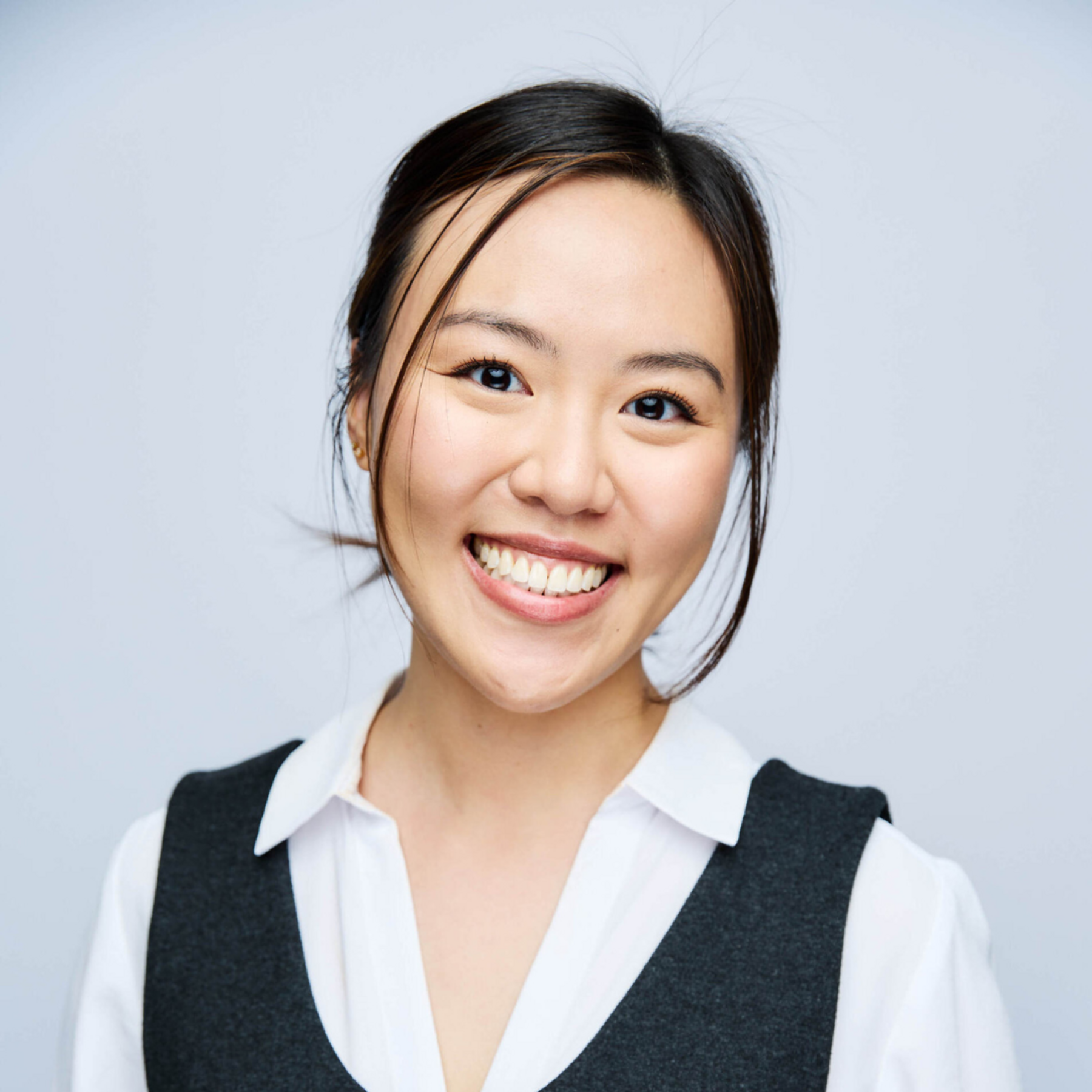
What made you want to become a Genetic Counsellor?
When I was in undergrad, I was looking for a career that combined my interest in genetics with a clinical role. I loved genetics but I wanted a career where I could meet with the people who could benefit from the work that I would be doing. I had a guest lecture from a Genetic Counsellor who introduced me to the field and after that I was hooked!
I love the fact that the field is continuously growing and that the application of genetics in healthcare is so broad. I have always found precision medicine to be intriguing and I am excited to be part of the future of precision health.
What aspects of genetic counselling are you most passionate about?
I am most passionate about being able to interact with patients and empower them with knowledge about their own health and genetics. I love being able to explain to them what we know about genetics and how they can use this information to make informed decisions to manage their health or their child's health.
Genetics is unique because the information can help the patient but can also inform the patient’s family about conditions that they may have or be susceptible to developing. Being able to share knowledge and offer psychosocial support in their diagnostic journey is a true honour.
What’s coming up next for you?
Up next is applying for Genetic Counsellor jobs! Positions are rolling out slowly but steadily, and I am on the lookout for a good match.
If you could talk to your first-year-of-grad-school self, what would you say?
I would tell myself to enjoy my time as a student, as it won’t last forever. The past two years have flown by and although they were tough and I had to put in a lot of hard work, I am going to miss going to class everyday with my classmates and learning from such amazing mentors.
What advice do you have for incoming graduate students?
My advice for incoming graduate students is to always remind yourself why you chose your program and that your program also chose you! It is no small feat to be accepted into a graduate program and you should be extremely proud of that.
When school work starts to pile up, it is easy to feel overwhelmed, but just remember that every little thing that you are doing is bringing you closer to your end goal. You won't always be the best at everything right away and that's okay! You are here to grow and learn and when you look back at the end of your journey, you'll be amazed at how far you've come.
Vjura Senthilnathan
Degree: MSc
Program: Rehabilitation Sciences
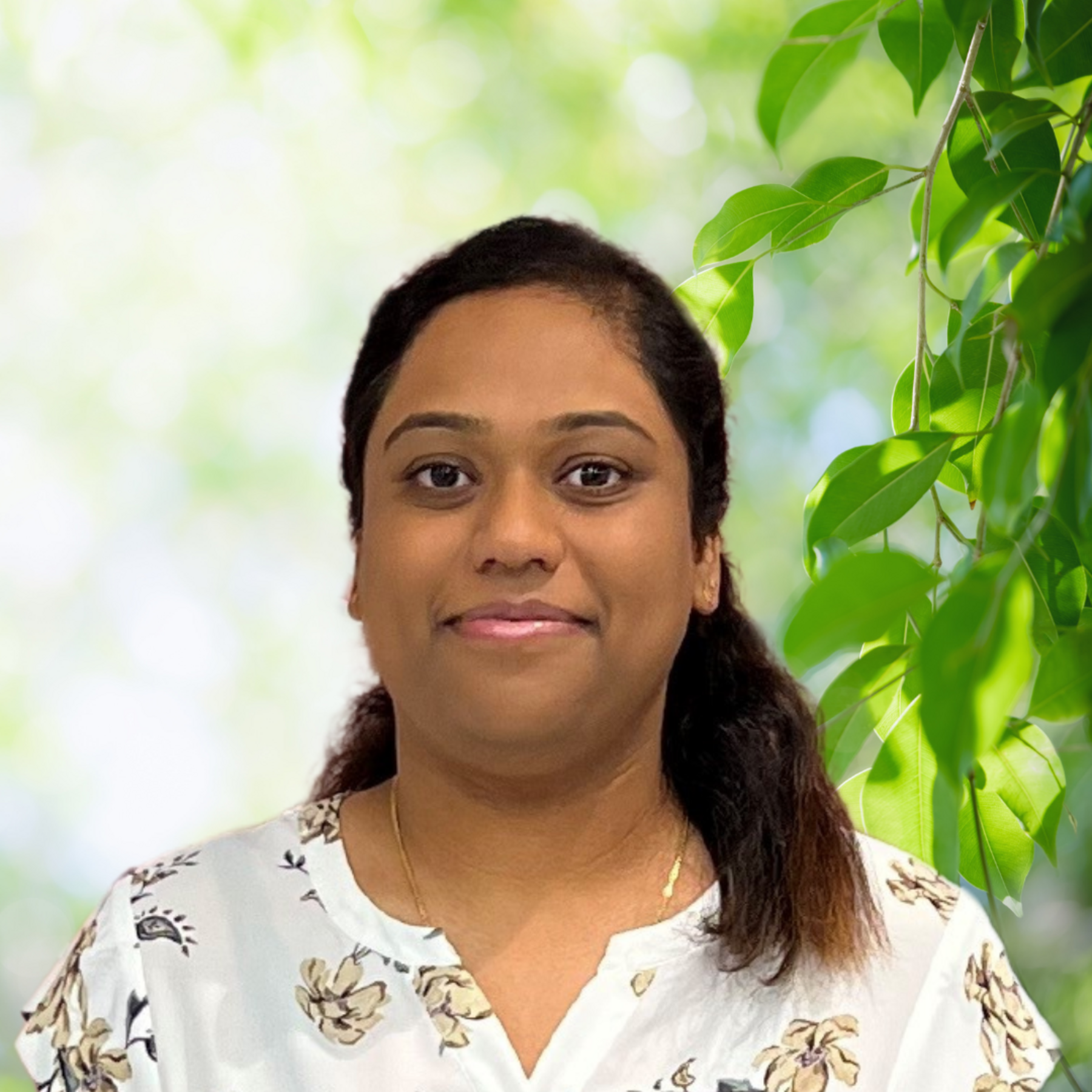
What made you want to study rehabilitation sciences?
My decision to study rehabilitation sciences was driven by a profound interest in understanding and improving the quality of life for individuals living with spinal cord injury. Throughout my undergraduate academic journey, I have been passionate about the intersection of neuroscience, biology, and psychology, and how these fields can be applied to rehabilitation settings, especially for those with spinal cord injury. Seeing the impact that rehabilitation can have on patients inspired me to delve deeper into this field.
What aspects of rehabilitation sciences are you most passionate about?
I am most passionate about the holistic and interdisciplinary approach that rehabilitation sciences offer in improving patient outcomes and quality of life. Specifically, I am passionate about patient-centred care and developing innovative interventions that are tailored to the unique needs of individuals with different health conditions.
What’s coming up next for you?
I am currently in the process of applying for medical schools and PhD studies. I am also actively involved in interesting research projects in different areas, including patient engagement in health research, spinal cord injury and adolescent medicine.
If you could talk to your first-year-of-grad-school self, what would you say?
Don’t be afraid to ask for feedback on work from peers and mentors as constructive feedback is essential for growth and improvement. Imposter syndrome is pretty common in academia but believe in yourself, be confident in your work and know that it's okay to make mistakes and learn from them.
What advice do you have for incoming graduate students?
Participating in campus events and networking at conferences can help you build a strong professional network early in your career, whether you are pursuing academia, industry, or another field. Take the opportunity to meet new people and attend seminars or workshops to strengthen your skills and knowledge.
There will be challenges and setbacks and cultivating resilience and adaptability is important. View these challenges as opportunities for growth and learning. Graduate school is often a unique and transformative period in your life. Embrace this journey with enthusiasm, resilience and a commitment to personal and professional growth.
